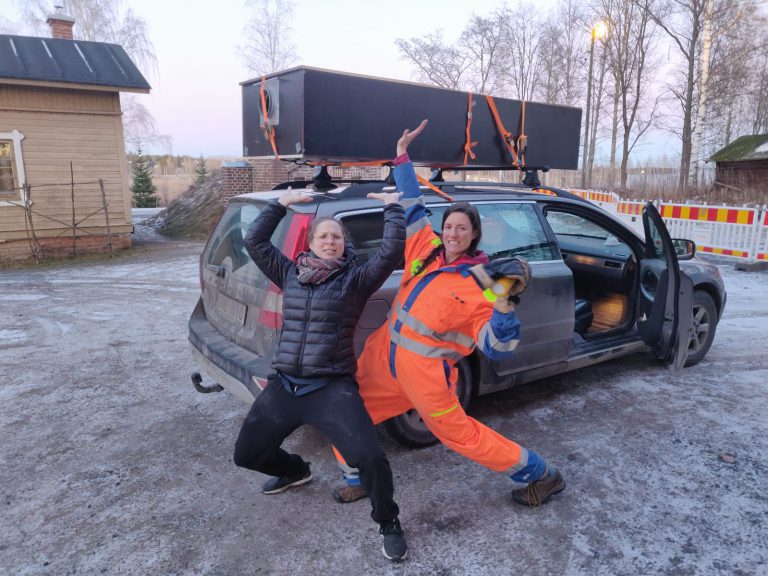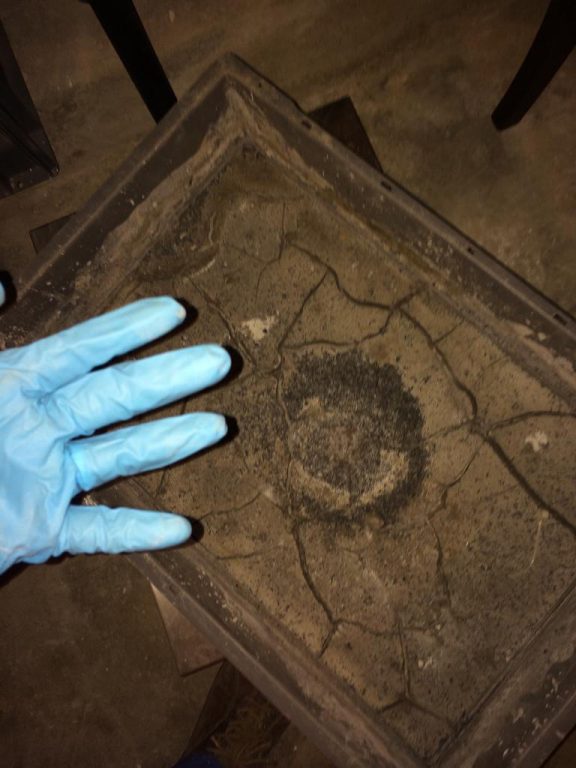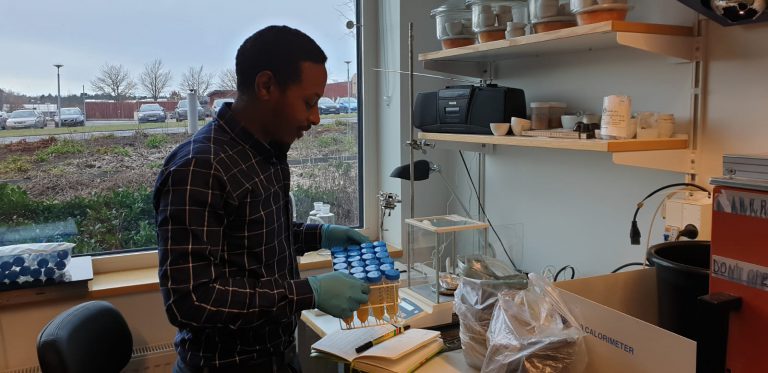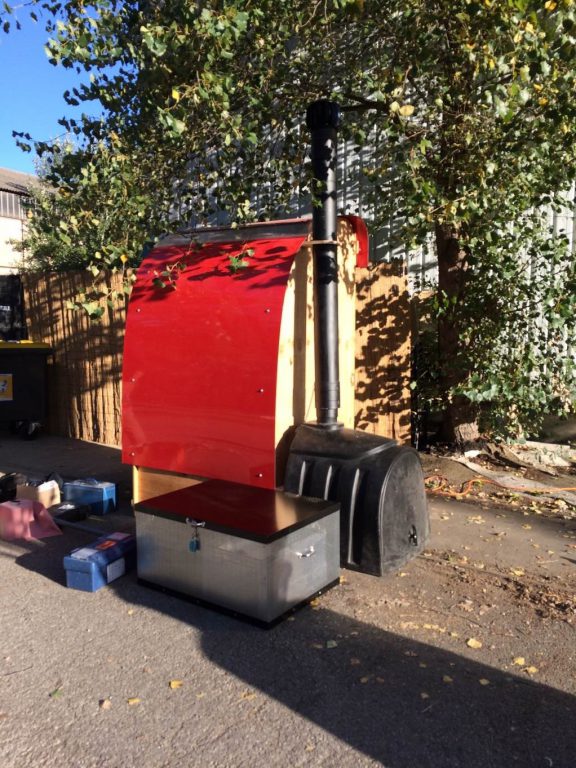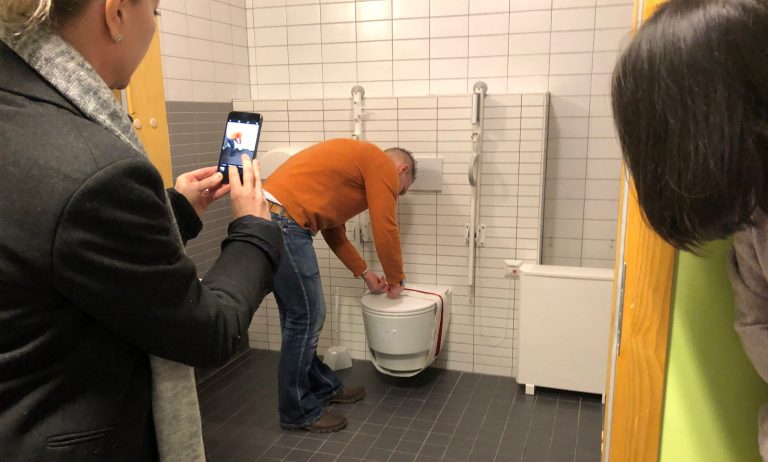
PC: Mia Peterson 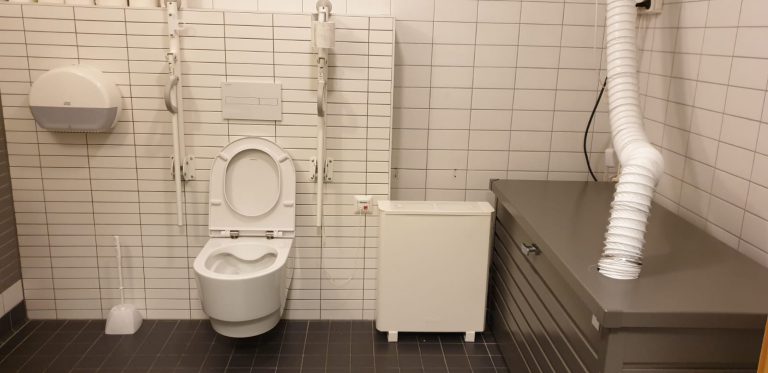
On 7th February, we inaugurated our new urine-diverting toilet here at the department of energy and technology, at SLU’s Ultuna campus. The installation was made possible due to a grant from SLU-climate fund that financed the installation together with the Save! Urine diverting flushed toilet from Laufen and SLU’s landlord Akademiska hus. The existing conventional toilet was exchanged with the new Laufen toilet “Save!” as a permanent installation. The urine is led out from the wall and connected to the test bed (the larger box on the side into where the urine drying equipment is installed).


